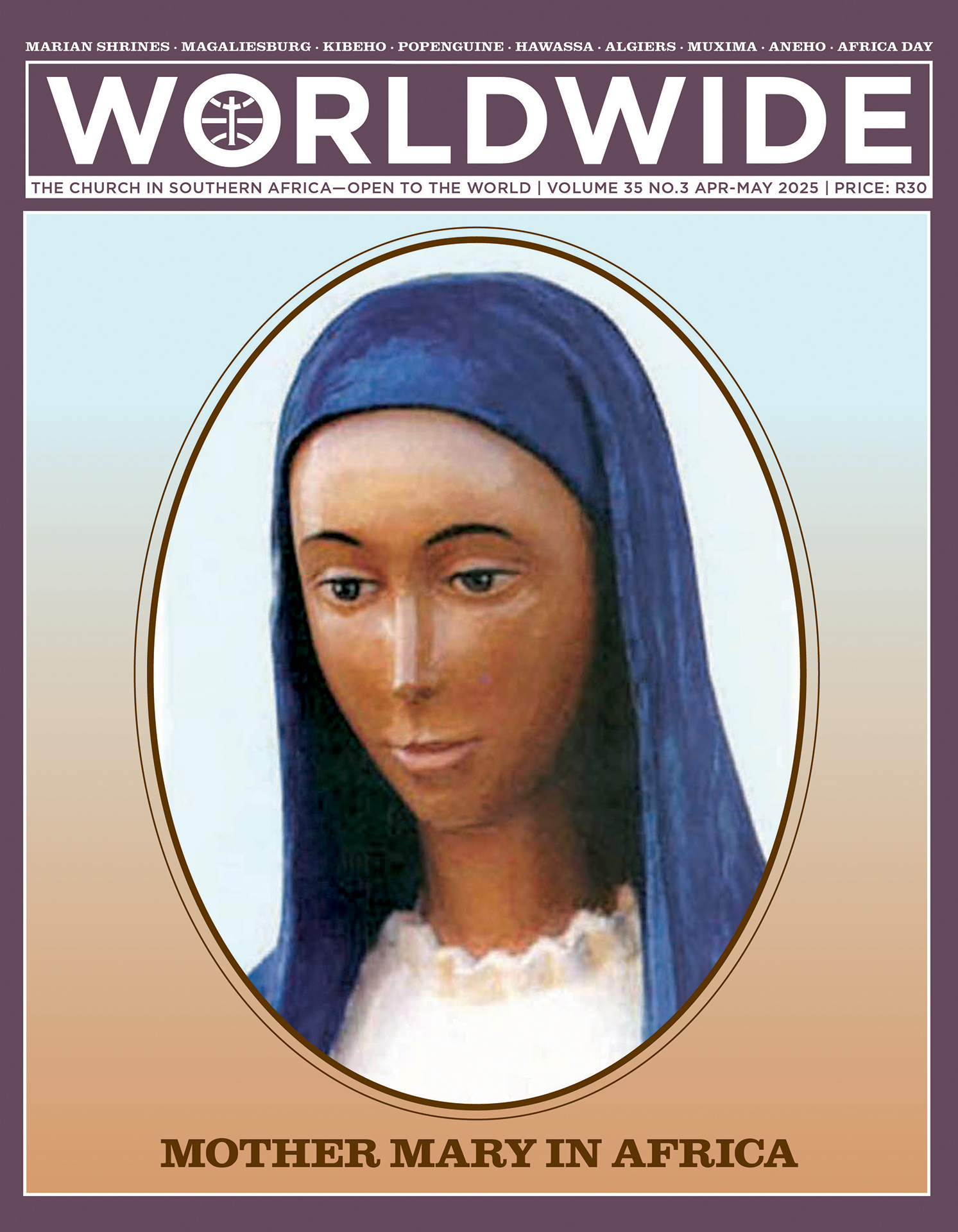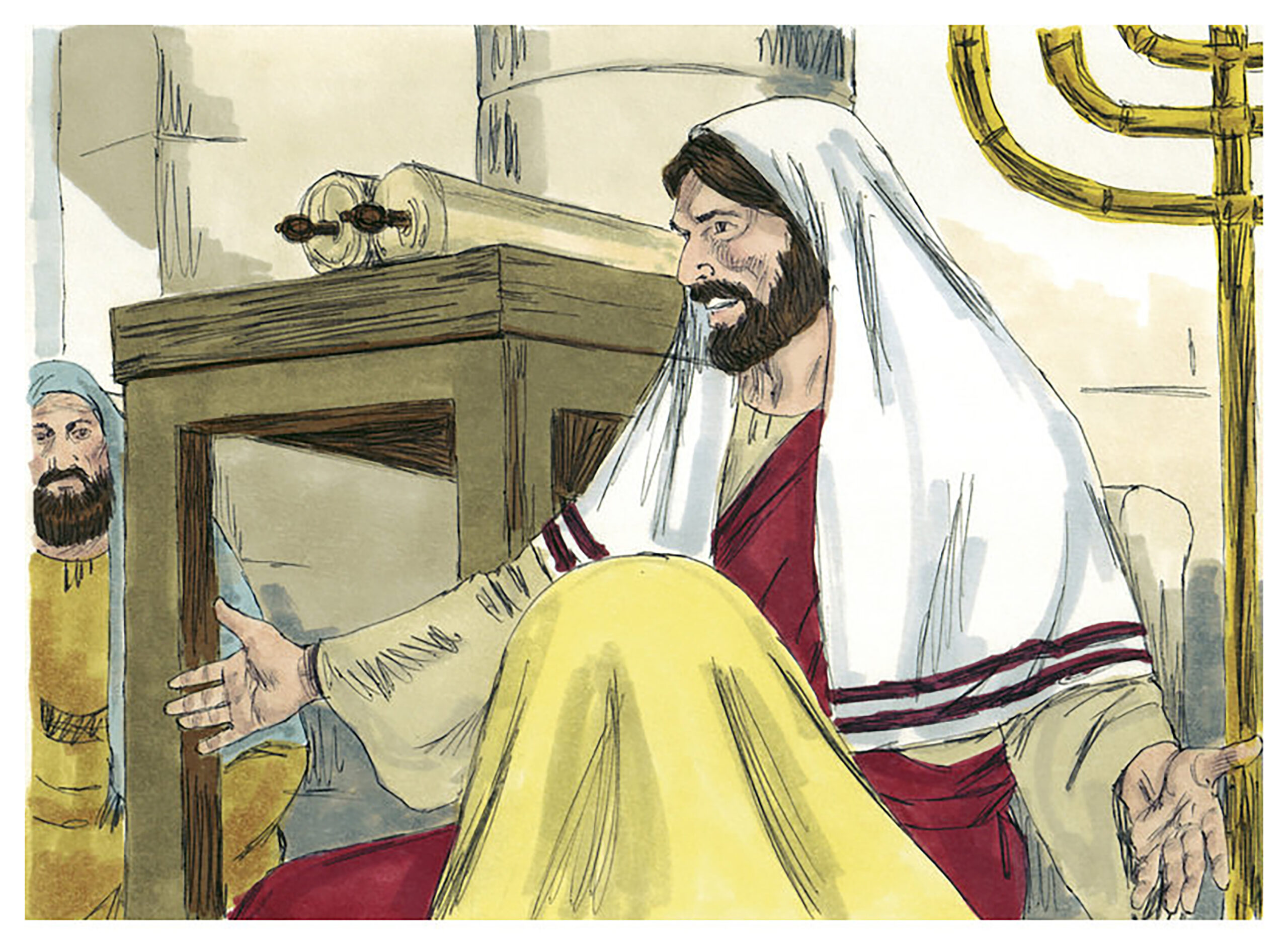
MOTHER MARY IN AFRICA
Head of the Statue of Mother Mary at Kibeho, Rwanda, carved by Marek Kowalski and based on the models of Jean Pierre Sibomana and Faustin Kayitana. In the statue, Mother Mary holds the Seven Sorrows Chaplet, a Marian devotion reintroduced to the Catholic community by Our Lady of Kibeho.
Kibeho is the only Marian apparition on African soil, officially recognized by the Church. Mother Mary’s requests for prayers preluded the 1994 Genocide.
THE LAST WORD • MAGNIFICAT

MY SOUL GLORIFIES THE LORD (LK 1:46-56)
BY FR SILVANO FAUSTI SJ | BIBLIST AND WRITER
THE MAGNIFICAT, with which the Church concludes evening prayer each day, is the song of those who have experienced God’s salvation. It is a song of praise, along the lines of Anna’s (1 Sam 2), which sees her promise being fulfilled. Mary’s song, occasioned by her veneration by Elizabeth, has the same melody as the Beatitudes (Lk 6:20-26). It expresses the bliss of those who have recognised God’s action in their lives; it bursts forth from the hearts of those who, having been renewed, welcome their Lord.
It is a personal, universal and cosmic hymn. Mary is the mouthpiece of the daughter of Zion, symbol of all humankind and creation, who sees the fulfilment of God’s promise (Ps 138:2). God’s intervention leads to song by human beings; the culmination of history will be a song of endless joy.
The Magnificat is the ripe fruit of the act of listening in faith, in which the purpose and meaning of creation and history is fully revealed. It is a compendium of the salvation history, describing God’s action—the exact counterpoint of human action—through a hundred quotations and biblical allusions. Its first part is Mary’s thanksgiving for what God has accomplished in her life (Lk 1:46-50), and her explanation of the reasons for this (Lk 1:48-49).
Mary is the first human being to recognise her own fragility and her distance from God. This is why God can give Himself to her in a full and absolute way. Mary’s fundamental merit is knowing that she does not deserve the gifts. In her, all religious anxiety and thirst for perfection is overcome; in her we find the perfect peace of those who recognise their own truth as infinite nothingness. Without despairing, they are capable of containing God’s infinite truth.
Mary proclaims herself ‘slave’ and ‘humble’. Her humility, however, is not that ‘beautiful virtue’ that leads one to lower oneself, perhaps so as not to fall or be exalted by others; but the essential truth of being humus, humble, earthy, recognising and accepting that God is the only Great One.
The second part of the Magnificat extends God’s act of salvation in her for all humanity, described in seven statements (Lk 1:51-56), with verbs in the past tense, because in what has happened to her, the promise of Israel has already been fulfilled. It is the song of how God has acted and will act forever.
His mercy is not sterile: His compassion is action which breaks down the impassable limits of humans. The first realisation of those who make God great is to experience His ‘arm’. He extends it as seen in the exodus (cf. Deut 5:15), and thereby saves the lost. He alone is God, strong and victorious over all evil. To know His arm is deliverance from the suspicion that evil is stronger than good, that evil is powerful and almighty.
As God liberates the lost, so also the proud. He dismantles the sophistry to which the heart of man has fallen victim, who, not trusting God, has made God himself. Thus, even the proud, finding themselves lost, can become humble and be saved. By the mighty hand of God, the humble are saved and the foolishness of the proud heart is overcome. Our human destiny is reversed, our experience of evil and suffering, of domination and oppression, of slavery and subjection, is turned around. The injustices, thrones and idolatries that enslave us are abolished. Every man and woman, despite their reality as paupers, is granted dignity as the beloved of God.
While the hungry person is satiated and the satiated one is reduced to hunger, all remain able to be satiated by God. This must be understood in a material and a spiritual sense; satiated man’s insatiable hunger is hunger for God. On the other hand, every false satiety will be reduced to genuine hunger, so that it no longer hungers for idols, but for the truth.

